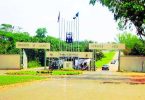Last October, the Independent National Electoral Commission (INEC) stated that 40.80 per cent of Nigeria’s 9.518 million newly registered voters were students.
In terms of demographic distribution, 7.20 million of these new voters or 76.50 per cent were young people between 18 – 34 years old.
The statistics about the number of students who have registered to vote may pale against the total number of 93.46 million eligible voters in Nigeria with students comprising 26.02 million, which represents 26.80 per cent.
Yet, students occupy a unique position in the politics of any country. It is safe to say that the burden of nation-building in Nigeria lies on the shoulders of students of higher and tertiary institutions of learning.
Political scientists may disagree on definitions of what a nation is and some of these definitions would disqualify Nigeria from the league of nation-states. But they agree on some acceptable characteristics that make a nation.
The working definition here is that a nation is a body of people who see parts, at least, of their identity in terms of a single communal identity with some considerable historical continuity of union, with major elements of a common culture, and with a sense of geographical location at least for a good part of those who make up the nation.
Nigeria checks the historical continuity of union and geographical location boxes. Building the Nigerian nation-state from a base of its multi-ethnic and poly-religious roots requires a form of socialisation and schooling that emphasises its common history.
This helps in cultivating common thoughts and feelings necessary to give birth to a Nigerian dream. This is why it is lamentable that anyone could contemplate expunging history from Nigeria’s school system.
“Those who cannot remember the past are condemned to repeat it,” George Santayana said in his ‘The Life of Reason.’
Nation-building is the process of creating unity and a sense of belonging among heterogeneous groups in the state. In this endeavour, truth and love are crucial. Truth is an intellectual function, whereas love is a heart function.
Both are necessary for patriotism, which is the fundamental element in constructing a nation. This indicates that student’s education should not stop at learning; character development is crucial and equally significant. It also reinforces the place of students as nation-builders par excellence.
Similarly, voter registration statistics are a testament to rising political consciousness among students in higher institutions, an awakening to nation-building. And students are a formidable force because this is where brute youthful energies meet intellectual agility and character, a combination that resists repressive and oppressive political systems.
In 1989 some 100, 000 students gathered at Beijing’s Tiananmen Square to commemorate the death of Hu Yaobang, a deposed reform-minded leader of the Chinese Communist Party. This also voiced their discontent with the authoritative Chinese communist government at the time.
Ignoring government warnings of violent suppression of any mass demonstration, students from more than 40 universities began a march to Tiananmen.
The struggle between the government and students at Tiananmen Square has produced some of the most historic examples of what is possible when students develop a collective, active and proactive political consciousness.
While Nigerian students are not necessarily faced with an overtly repressive government or political system. There are indications of covert nonchalance toward matters pertaining to youth development on the part of the Nigerian government and the current crop of politicians.
The lack of clear action from the government and events following the Endsars protests of October 2020 to end police brutality show that the Nigerian youth, comprising 70 per cent of the country’s 217 million people have little influence on how the affairs of public governance are managed. The way to change this is through political involvement.
Every Nigerian youth is required to get involved, with brawns and brains. More responsibility falls on the shoulders of students in higher institutions because the task of political change and leadership as required in Nigeria calls for elevated national conversations.
To attain this height of political success, civic education is critical. Students should arrange educational programmes in their various student organisations to inform, re-orient, empower, and educate themselves on the need of accepting and appreciating one another regardless of religion, ethnicity, location, and other factors.
This acceptance will be on the basis of the shared historical experience of colonialism and the civil war, people are to be taught to accept Nigeria as their own.
Raising concerns with state governments about the inequality in formal education costs between indigenes and non-indigenes of a state, as well as in employment, is another aspect of civic education.





